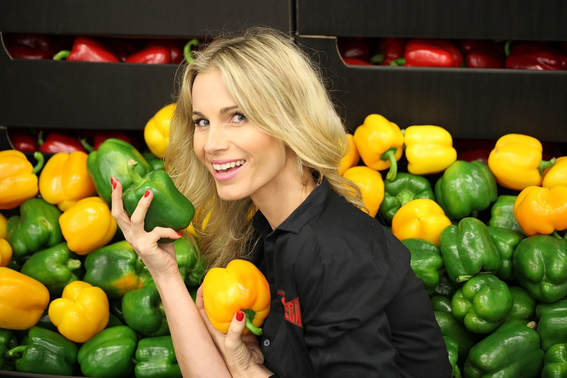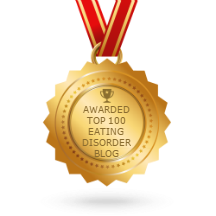- Home
- About
-
Services
- Therapy
-
Eating Disorder Trainings
>
- Clinical Approaches To Treating Body Image Issues
- Clinical Approaches To Treating Bulimia & Binge Eating Disorder
- Finding Freedom From Binge Eating
- Finding Freedom From Anorexia
- Supporting A Loved One With An Eating Disorder
- Eating Disorder Recovery Road Map
- Healing From Body Hate And Practicing Self-Compassion
- Common Questions
- Blog
- Press
- Contact
|
She is in recovery from an eating disorder. She’s no longer restricting, bingeing, or purging, and she is finally starting to feel free from this illness. She enjoys laughing with her friends over scones and coffee at Starbucks, and is no longer spending so much time fixated on food or her body. It begins subtly. She reads an article online about the benefits of ‘clean eating’ and ‘whole foods.’ She starts following ‘clean eating’ enthusiasts on Instagram, and spends time pouring over their pictures of perfectly styled acai bowls. She can’t believe how ‘unhealthy’ she was eating before and feels a sense of pride when checking out at the grocery store, with a cart filled to the brim full of ‘clean,’ organic, and ‘whole foods.’ The Problem With ‘Clean Eating’ In Recovery There’s a problem within the eating disorder recovery community, and I’m about to share a somewhat controversial opinion. I posted a status on Facebook that was highly shared and commented on. “Saying that you’ve recovered from an eating disorder and now you eat “clean” and stay away from processed foods-is like saying you are sober from alcoholism-yet maintain a “healthy” relationship to alcohol by sticking to wine and beer. While “clean eating” may be socially sanctioned-it’s incredibly dangerous for those in eating disorder recovery (and largely unhelpful to the population in general.)” This status was prompted by yet another interview featuring someone who claims to be in strong recovery from an eating disorder, who describes how she ‘eats clean’ and avoids all processed foods. 'Clean eating’ is largely unhelpful for the general population and can create a disordered or unhealthy relationship to food. However, it’s downright dangerous for those in eating disorder recovery. Here’s the thing: eating disorders are often sneaky illnesses. In recovery, they can try to subtly claw their way back into someone’s life. Think of an eating disorder as an abusive partner, who will say anything to try to get you back into their grasp. Research suggests that the best sustained recovery outcomes, occur when individuals are able to incorporate variety and flexibility into their eating patterns. Additionally, eating disorders thrive on rules, rigidity, and a sense of “good” vs. “bad” foods. Therefore, trying to ‘eat clean,’ and the idea that there are ‘unclean foods,’ which should be avoided-is incredibly triggering for those with the underlying genetics for an eating disorder. Anytime you apply rules or restriction to your eating patterns in recovery, there is a greater chance for the eating disorder to sneak back in. Of course, there are genuine exceptions, if you have been diagnosed by a doctor with celiac-for instance. However, largely the aim is to have flexibility, variety, and pleasure in your eating patterns. Further, there’s an emerging eating disorder called “orthorexia,” which is essentially an unhealthy fixation with ‘healthy eating.’ It’s easy to see how someone might transition from one eating disorder to another (more socially acceptable) presentation of an eating disorder. This can be difficult to recover from, as many may not even recognize that it is a problem. The Bottom Line I have so much empathy and compassion for how easy it is to fall into the ‘clean eating’ or ‘fitness’ trap while in recovery from anorexia, bulimia, OSFED, or binge eating disorder. In a culture where everyone is running around promoting juice cleanses, ‘detox’ diets, and ‘clean eating,’ it makes sense that this can happen. However, what’s important is that you recognize that this is typically another presentation of your eating disorder and it’s crucial that you reach out for treatment and support if you are struggling. Additionally, it’s important to note that food and morality have nothing to do with each other. Carrots aren’t wearing angel halos and cake isn’t diabolically plotting to harm you. All foods can fit into a healthy diet, and can be enjoyed guilt-free. Because you never need to feel guilty for eating, unless you stole that brownie from the store. Guilt free foods=all foods. Further, if the goal of ‘clean eating’ is purported to be health, it is important that we recognize that good mental health is a crucial part of a healthy lifestyle. I think we can all agree that obsessively following food rules, being unable to eat a meal out with friends, and feeling ashamed after eating a brownie is not mentally healthy. Especially if you are in recovery from or have a history of an eating disorder, there is simply no way to ‘eat clean,’ quit sugar, avoid processed foods, go on a diet (even if you call it a lifestyle change!), and strongly maintain your recovery. It’s paradoxical. It’s like, saying “let me heal from my mental illness that causes me to obsess and focus on food and my body-by finding a new way to obsess and focus on food and my body.” Ultimately, you deserve to be truly free from food rules, obsession, and body-hate. Jennifer Rollin, MSW, LCSW-C: is an eating disorder therapist in private practice in Rockville, Maryland. Jennifer specializes in helping teens and adults struggling with anorexia, binge eating disorder, and bulimia, and body image issues. Jennifer provides eating disorder therapy in Rockville, MD, easily accessible to individuals in Potomac, North Potomac, Bethesda, Olney, Germantown, and Washington D.C. Connect with Jennifer through her website: www.jenniferrollin.com Check out Jennifer's on-demand eating disorder trainings here!
9 Comments
Cindy Brook
4/25/2018 09:16:59 pm
Thank you. I agree wholeheartedly with your view. Clean eating is very sneaky in eating disorder recovery. Good vs. bad, clean vs. unclean. It's insidious. I was in a Panera and they have a sign that says they only serve clean food (or something like that). (I wonder where cookies fall into their clean foods.) Anyhow, while it can easy to fall into the clean eating syndrome, I'm grateful I can stay the course and know in my heart will not work in my recovery. Thank you.
Reply
5/28/2019 02:41:19 pm
That is interesting that eating disorders are sneaky illnesses. It would be good to get therapy services if I were to discover someone close to me had an eating disorder. Maybe it would be good to check my family out to make sure we don't have any eating disorders.
Reply
Sydney
11/9/2019 09:48:04 pm
This is excellent! I fell into it and thought it actually SAVED me from my eating disorder, when in reality I had just built myself into a prison where I felt safe and my eating disorder was so pleased that it was quiet. Not only was I only ever thinking about food, but I ended up malnourished, despite how “clean” and “healthy” I was eating. I was sent to residential treatment and had to fight extremely hard to break the hold that this way of life had on me. Though I’m in recovery, I still struggle with the thoughts of all the “facts” I learned while doing clean eating, and it takes consistent effort to choose not to listen to them. You are right on - thank you for doing this important work!
Reply
4/3/2020 02:36:23 pm
I like how you emphasized that if you label your food as good or bad then it will be easier for your eating disorder to sneak back into your life. My sister-in-law is anorexic and she never eats anything that is considered to be junk food. She claims that it is a bad food but then when she eats, for example, a hamburger, she freaks out and doesn't eat for a day.
Reply
12/7/2022 12:03:47 am
Great post! and incredible blog! Very helpful post! I must say. Simple & interesting. Wonderful work!
Reply
9/4/2023 12:06:58 am
Very nice article, exactly what I needed. Very useful post I really appreciate thanks for sharing such a nice post. Thanks
Reply
9/25/2023 12:21:38 am
Thanks for sharing. I really appreciate it that you shared with us such informative post, great tips and very easy to understand.
Reply
Leave a Reply. |
About MeI'm an eating disorder therapist in private practice in Rockville, MD. Archives
June 2024
|


 RSS Feed
RSS Feed
